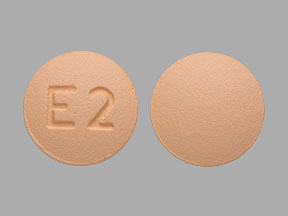
Relpax Coupons & Savings Card – Discount Prices from $25.64
Brand for: Eletriptan
My prescription
Edit
40MG, Eletriptan (12 Tablets)
Select pharmacy

CVS
$25.64
COUPON PRICE
Walmart
$32.70
COUPON PRICE
Walgreens
$34.32
COUPON PRICE
Albertsons
$37.72
COUPON PRICERelpax savings card
Show this card to your pharmacist
CVS
$25.64
BIN
ID
PCN
GRP
019876
LH19C4E2B4
CHIPPO
LHX
Powered by
Related triptans prescriptions
More prescriptions for migraine
Related triptans prescriptions
More prescriptions for migraine
Price history for Relpax (brand) & Eletriptan (generic)
12 Tablets, 40MG
Average retail price for Relpax
Average retail price for Eletriptan
Average SaveHealth price for Eletriptan
Our price history data is based on aggregated prescription data collected from participating pharmacies in America. Our prescription data updates daily to reflect the latest price changes. If you notice a missing data point, it means there wasn't sufficient data available to generate a monetary value for that date.
Over the last 12 months, the average discount price of Relpax is $33.87 using the SaveHealth savings card. That's an average savings of 94.24% on Relpax with our discount card.
*Retail prices are based on pharmacy claims data, and may not be accurate when we don't have enough claims.
Relpax (Eletriptan) dosage forms
Dosage Quantity Price from Per unit 20MG 1 Tablet $6.02 $6.02 20MG 6 Tablets $22.74 $3.79 40MG 12 Tablets $25.64 $2.14 40MG 1 Tablet $5.02 $5.02 40MG 6 Tablets $17.60 $2.93 40MG 9 Tablets $23.80 $2.64 40MG 30 Tablets $44.65 $1.49
| Dosage | Quantity | Price from | Per unit |
|---|---|---|---|
| 20MG | 1 Tablet | $6.02 | $6.02 |
| 20MG | 6 Tablets | $22.74 | $3.79 |
| 40MG | 12 Tablets | $25.64 | $2.14 |
| 40MG | 1 Tablet | $5.02 | $5.02 |
| 40MG | 6 Tablets | $17.60 | $2.93 |
| 40MG | 9 Tablets | $23.80 | $2.64 |
| 40MG | 30 Tablets | $44.65 | $1.49 |
What is Relpax used for?
Relpax is used for the acute treatment of migraine headaches with or without aura in adults. It is not intended for the prevention of migraines or for the treatment of cluster headaches.
Does Relpax make you sleep?
Relpax (eletriptan) is not typically known to cause drowsiness or make one sleep. However, some individuals may experience fatigue or dizziness as a side effect, which could potentially lead to a feeling of sleepiness. It is important for individuals to monitor how they react to the medication and consult with a healthcare provider if they experience any concerning side effects.
Is Relpax the same as sumatriptan?
Relpax and sumatriptan are not the same medication, although they are both used to treat migraines. Relpax contains the active ingredient eletriptan, while sumatriptan is the active ingredient in another class of migraine medications. Both belong to a class of drugs known as triptans, which work by narrowing blood vessels around the brain and reducing substances in the body that can trigger headache pain, nausea, and other migraine symptoms. However, they are different drugs and may have different efficacy and side effect profiles for different individuals.
Is Relpax better than Imitrex?
The effectiveness of Relpax (eletriptan) versus Imitrex (sumatriptan) can vary depending on the individual. Both medications are triptans used to treat migraines, and they work similarly by narrowing blood vessels around the brain and reducing substances that trigger headache pain. Some patients may find one more effective or better tolerated than the other. It is important for individuals to consult with their healthcare provider to determine which medication is more suitable for their specific condition and medical history.
What does Relpax do to the brain?
Relpax, known generically as eletriptan, works by stimulating serotonin receptors in the brain. This action helps to constrict blood vessels and reduce inflammation, which can alleviate migraine symptoms. It is specifically used to treat acute migraine attacks.
